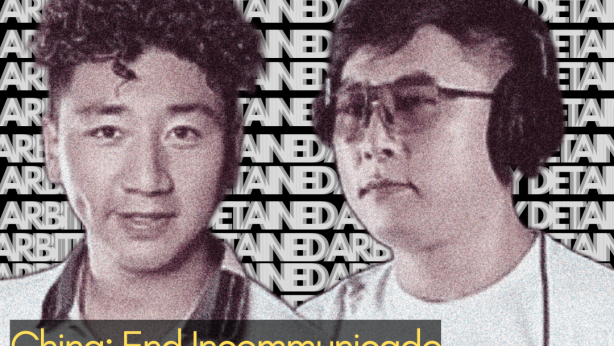China: Release Tibetan scholar Gō Sherab Gyatso from arbitrary detention
The Tibetan Centre for Human Rights and Democracy (TCHRD) strongly protests the arbitrary detention of Gō Sherab Gyatso, an outstanding Tibetan scholar known for his formidable activism and outspoken views. Chinese authorities must provide credible evidence of crimes or release Gyatso immediately from arbitrary detention.
Gyatso, a resident of Ngaba (Ch: Aba) County in Nagba Tibetan Autonomous Prefecture had been detained without explanation on 26 October last year in Chengdu, the capital of Sichuan Province. This is his fourth known detention in more than two decades and it was carried out by the Chinese State Security officers from Tibet Autonomous Region (TAR). At the time of his detention, he was visiting a patient in Chengdu.
“Chinese authorities must immediately end arbitrary detention of Gō Sherab Gyatso and allow him to meet his family members and access legal representation,” said Tsering Tsomo, TCHRD’s executive director. “We are deeply concerned about his health and wellbeing given China’s routine practice of holding Tibetan detainees in secret locations mainly to extract forced confessions through torture.”
The reason for Gyatso’s latest detention remains unknown. Relatives and friends fear that the scholar had been detained in connection with his plain-spoken views on Tibetan Buddhism and education.
Chinese authorities have warned his family and relatives in Tibet against speaking about the detention or else face heavy criminal punishment. Gyatso continues to remain in incommunicado detention at an undisclosed location.
In 1998, Gyatso was detained twice with the second detention resulting in him spending three years at Mianyang Prison near Chengdu. The reason was his and other monks’ refusal to denounce the Dalai Lama during the implementation of Patriotic Education campaign at Kirti Monastery, where he was a student. During the first detention, he and another monk named Lama Jingyam Trulku were subjected to extreme temperatures and other forms of torture. Both were punished for defying orders from the Ngaba County police to remove the Dalai Lama’s portrait, which had been placed alongside the portraits of Panchen Lama and Kirti Rinpoche on an altar during the Gaden Ngachoe religious festival at Kirti Monastery.
In mid-March 2008, he was among the 47 Ngaba Tibetans, including lay and monks studying at Sera and Drepung monasteries, who were detained in the aftermath of a protest staged by Ngaba monks on 12 March in Lhasa. The group remained under house arrest for a month at Sera Monastery, followed by a 15-day detention at a military facility in Nyethang Township in Chushur (Ch: Qüxü) County, Lhasa Prefecture. Later, they were held in a detention facility in Nagormo (Ch: Golmud) city in Tsonub (Ch: Haixi) Mongol and Tibetan Autonomous Prefecture. On 27 August of the same year, they were moved to Ngaba County’s Trotsik Township where they were detained for several days at a school in Sekor Village before being released on 4 September. For more than six months, they were detained without charge or trial. Sources said the detention was to prevent them from joining the mass protests that rocked Lhasa at the time.
In 2011 he was detained in Siling (Ch: Xining) by Ngaba State Security officers and taken to a detention centre in Chengdu. Although the exact reason for his detention remains unknown, his younger brother Gō Jigmey said that the detention might be connected to the book he wanted to print in Siling. Another source said the detention was carried out without any clear basis and the authorities were merely suspicious.
Again in 2013, he was expelled from Kirti Monastery after he objected to an order from the monastery’s education committee, which forbid monks from publishing any writings that were not approved by the board. In an essay titled, ‘Can’t Help Speaking Out’, he tried to persuade the board to rescind its order for violating freedom of expression.
Gō Sherab Gyatso is a highly respected Buddhist scholar and intellectual who has authored eight books since 1998 until his detention in 2008. He had learned Chinese during his imprisonment in 1998. His father Khashul Go Nyun Tsondue was a minister at the court of Pelgon Thinley Rabten, the last king of Meu kingdom in Ngaba. His maternal grandfather Thutop Wangchuk was one of the king’s most senior ministers during the mid-20th century. Along with many other Tibetans, Gyatso’s father had organized the 1968 Hongtren revolt, which the Chinese troops suppressed with mortar shell attacks killing 2,800 people and injuring about 10,000.*
*’Wound of Three Generations’, Kirti Monastery’s Jepa College Coordination Committee, 2010.


